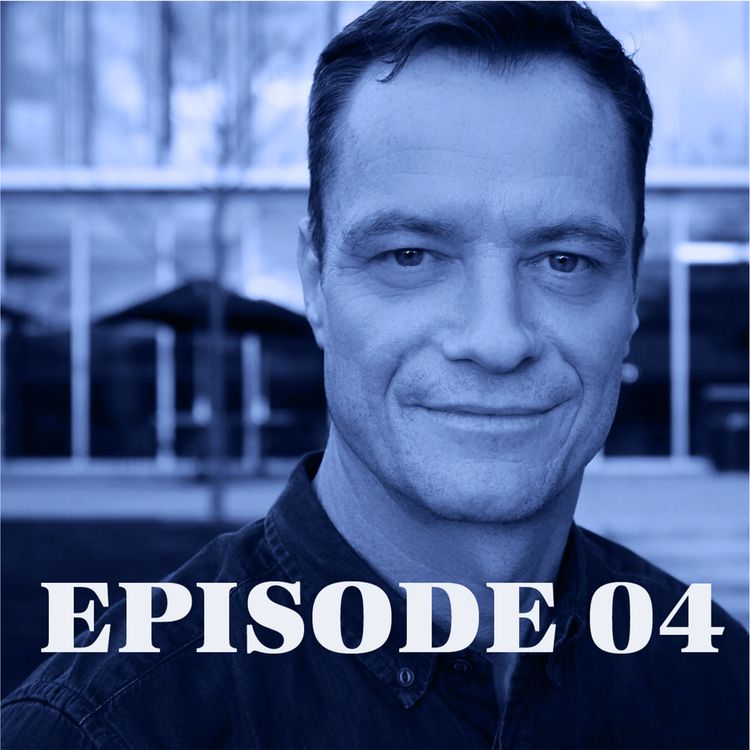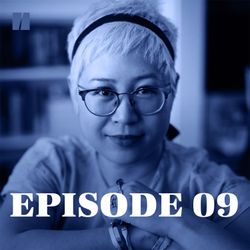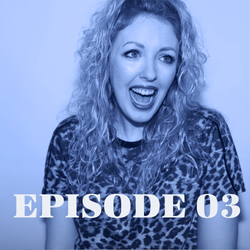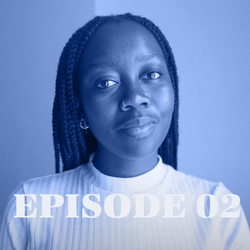Share

Chronic By HuffPost
4. HIV Won’t Kill You Anymore – But The Stigma Will
Lucy Pasha-Robinson chats with gender discombobulist and drag queen Rory O’Neill, AKA Panti Bliss, who lives with HIV.
In 1995, when Rory was diagnosed, his doctor handed him a death sentence. Now, it’s a medically managed condition that Rory barely thinks about. In this episode, we explore the dangers of the enduring stigma around HIV, in spite of the huge strides in treatment that have happened over the past three decades.
We talk about how not to lose yourself in a diagnosis, and what helped Rory stay grounded.
And we dive into the healing power of drag, and taking ownership of the narrative around your condition through comedy.
Follow Rory O’Neill on Twitter @PantiBliss.
Stay tuned for more on all things Chronic by following host @LucyPasha on Twitter.
Want to reach the team? Drop us a line at chronic@huffpost.com
More episodes
View all episodes

10. 10. The Hidden Scandal In Women’s Health
58:44||Season 1, Ep. 10It’s the last episode of this season of Chronic and host Lucy Pasha-Robinson is tackling a subject close to her heart – endometriosis, a common yet debilitating disease affecting at least one in 10 women, including her. In this no holds barred chat, Lucy is joined by an all-star panel of endometriosis experts, who also live with the disease: Gabrielle Jackson is news editor at Guardian Australia and author of Pain and Prejudice, Lucia Osborne-Crowley is a freelance journalist and author, and Fiona Timba is a lawyer and founder of social community Endo So Black. Together, they are tackling the big questions: Why do we know so little about this disease? What is its impact? And what can we do to change the story?We hope you enjoyed this season of Chronic. We hope to bring you more episodes in the New Year – until then, stay tuned for updates by following host @LucyPasha on Twitter.Want to reach the team? Drop us a line at chronic@huffpost.com
9. 9. Is Psychosis The Last Mental Health Taboo?
52:54||Season 1, Ep. 9In this penultimate episode of this season of Chronic, host Lucy Pasha-Robinson is joined by New York Times best-selling author Esmé Weijun Wang, who lives with schizoaffective disorder.In this candid chat, we tackle some of the common misconceptions around psychosis – namely that sufferers are violent or dangerous. In fact, those with a diagnosis of a schizophrenic disorder are much more likely to be victims of violence. Esmé shares what it’s like to live with delusions, hallucinations, both auditory and visual, and other psychotic symptoms that are so often misunderstood. We talk identity when you live with mental illness, judgement by others, support networks and coping strategies. And address the big question – have the collective schizophrenias been left behind in our conversations around mental health?Follow Esmé @esmewangStay tuned for more on all things Chronic by following host @LucyPasha on Twitter.
8. 8. Why We Should All Be In Therapy
28:34||Season 1, Ep. 8In this episode of Chronic, host Lucy Pasha-Robinson is joined by Ali Gaspar, AKA A Star, a rapper and grime artist who lives with sickle cell anaemia. We dive headfirst into why we know so little about this cripplingly painful disease – could it be because it predominantly affects Black and Asian communities?We also talk dating etiquette when you live with a hereditary illness, masculinity and learning how to show vulnerability when living in chronic pain, music as a form of self-expression, religion and the role of faith in feeling hopeful, and the life-changing importance of good therapy. Follow Ali @AStarMusicUKStay tuned for more on all things Chronic by following host @LucyPasha on Twitter.Want to reach the team? Drop us a line at chronic@huffpost.com
7. 7. How Can I Plan For The Future?
30:19||Season 1, Ep. 7This week, host Lucy Pasha-Robinson is joined by Robin Hatcher, a comedian and MS Society ambassador who was diagnosed at the end of last year. Just a few months later, he found himself self-isolating in lockdown as the world grappled with a deadly viral pandemic. We talk about coming to terms with a degenerative diagnosis, living with uncertainty, family planning and why it’s so important to cultivate a truly “no fucks given” attitude when living with chronic illness. Follow Robin @orangenextdoorStay tuned for more on all things Chronic by following host @LucyPasha on Twitter.Want to reach the team? Drop us a line at chronic@huffpost.com
6. 6. How It Feels When People Think You're 'Too Young' To Be Ill
33:54||Season 1, Ep. 6This week we’re serving you a bumper episode of Chronic, with not just one incredible guest, but two. Host Lucy Pasha-Robinson is joined by Chloe Elliot, AKA Chloe In Curve – a plus sized fashion blogger who lives with psoriatic arthritis.Also on the line is Sukhjeen Kaur, founder of Chronically Brown – a platform that focuses on South Asian experiences of chronic illness that she set up after being diagnosed with rheumatoid arthritis. For both these women, smashing stigma is all in a day’s work. We talk about what it’s like to be young, living with an “old person’s” disease, the dangers of not being believed when you’re plus-sized and in pain, and the complex attitudes towards illness in certain South Asian communities.Follow Sukhjeen @ChronicallyBrown and Chloe @chloeincurve_Stay tuned for more on all things Chronic by following host @LucyPasha on Twitter.Want to reach the team? Drop us a line at chronic@huffpost.com
5. 5. Men Can Fall Victim To Wellness Culture Too
25:04||Season 1, Ep. 5For National Diabetes Month, Lucy Pasha-Robinson chats with personal trainer and Ironman triathlete Jack Anderson. Jack was diagnosed with diabetes when he was 15 – a diagnosis he struggled to come to terms with, not least because of his phobia of needles, which gave him an aversion to injecting. Now, Jack is a confident 20-year-old who has just completed his first Ironman triathlon, something he would never have thought possible when he was first diagnosed due to his fluctuating blood sugars. We talk about coming to terms with living with chronic illness and the limitations that can impose on our ambition. We also talk body dysmorphia and eating disorders – all in the pursuit of “wellness”, and the specific barriers some men face in seeking support when living with illness. Follow Jack Anderson on Instagram @jackptukStay tuned for more on all things Chronic by following host @LucyPasha on Twitter.Want to reach the team? Drop us a line at chronic@huffpost.com
3. 3: How To Masturbate With A ‘Broken’ Vagina
30:02||Ep. 3Lucy Pasha-Robinson chats with comedian and cervical cancer awareness activist Karen Hobbs.In this episode, we’re doing things slightly differently – we’re talking about cancer, which is often seen as an acute condition.But as this week’s guest explains, in many ways its effects can be chronic – from living with life-altering sensations, surgery complications, and the long term psychological impact of facing up to your mortality – including learning to cope with a fear of recurrence. Join us for a candid chat on what it’s like to be diagnosed with “slut” cancer, and the challenges and joys of discovering self-pleasure after gynaecological surgery.Follow Karen Hobbs on Twitter @Karen_HobbsStay tuned for more on all things Chronic by following host @LucyPasha on Twitter. Want to reach the team? Drop us a line at chronic@huffpost.com
2. 2: Why Talking About Pain Is So Radical
37:02||Ep. 2Lucy Pasha-Robinson chats with BBC journalist and invisible illness activist Jam Prescod, who lives with Lupus.In this episode, we’re talking about pain: how radical it is to vocalise your pain as a Black woman; the legacy of not being believed when living with pain, and the emotional pain of adjusting to chronic illness – and all the lifestyle changes that can bring. We talk about what it means to be the perfect patient, and how to advocate for yourself in the doctor’s office – even if your consultant is kind of intimidating. And we dive into the pitfalls of the toxic positivity movement, and why, sometimes, it’s OK to feel sorry for yourself. Join us for an inspiring chat on the realities of living with chronic illness, with all the light and shade that brings.Follow Jam Prescod on Twitter @JamPrescod.Stay tuned for more on all things Chronic by following host @LucyPasha on Twitter. Want to reach the team? Drop us a line at chronic@huffpost.com